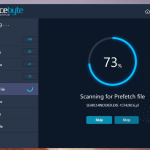If you want to make 2023 the year you start a business, it could be a good time. There are economic challenges, but a lot of successful entrepreneurs feel those are what make for the best opportunities.
Starting a business is never easy, no matter the overall economy, but the following are things to know and consider as we approach a new year.
Get Insurance
One of the most important things you can do is buy the necessary insurance. You have to protect yourself and have peace of mind. Check the requirements in your state to know what you absolutely must have. For example, business insurance in South Carolina may be different from what you need to have in California.
You want to make sure that you’re protecting yourself against any type of potential liability, as well as being compliant with the laws and regulations in your state.
Do You Have a Formal Business Plan?
If you don’t create a formal business plan, it’s one of the most common mistakes among new business owners, but it can also be one of the most problematic.
A business plan isn’t optional. It’s going to help you identify any potential issues that could exist with your idea. You can also use your business plan later on as you’re looking for sources of funding. For example, your potential investors and perhaps lenders will want to see your business plan.
Before you do anything else besides perhaps purchasing insurance, make sure you formalize your business plan. It can be simple—you want to identify whatever your product or service is, your funding needs, competitors, market opportunity, and potential customers.
Vet Your Business Idea
As part of your business plan, you’ll get the opportunity to vet your idea.
To vet your business idea before you launch, you should first see what’s out there. Learn from the successes and failures of other businesses. Start to figure out if your idea or approach is truly unique. You need to be significantly more innovative or better than your would-be competitors before you can justify a new business.
You need to understand who your targeted customer is. If you can get direct feedback from the people you’ll be targeting, that’s ideal.
Validate your value proposition, which means you thoroughly understand the problem that you’re trying to solve before you spend any time or money. Don’t assume that because you think your idea is good or you would want it, other people are going to feel the same.
Before you start a business, you also need to think about the size of the market.
Identify your competitive advantage once you’ve vetted your idea, and this is also a good time to start lining up partners and advisors.
Plan to Start Small
The smallest business you can possibly operate early on is likely going to be the best. Don’t get so excited that you overspend or stretch yourself too thin early on.
You can run a business with one person in those early days, and because of technology, you have a lot more opportunities to reduce your overhead.
You can scale up as you’re ready.
You might even want to self-fund and break up your products or services into smaller components, so you can pay for those early stages and gain experience and traction for scaling up.
The Technicalities
Once you’re past the research phase and you’ve fully vetted your business idea, and you feel like it’s strong enough that you can move forward, there are certain technicalities you have to keep in mind.
Along with your business plan, you’ll want to choose an ownership structure. The most frequently used types of business structures are sole proprietorship, a partnership, the limited liability company, or a corporation. You’ll choose a business name as well.
You’ll register your business after you have an ownership structure. You’ll want to make sure you’re aware of any licenses or permits you need, so you can start applying for those.
Will You Need a Business Loan?
If you aren’t going to be able to self-fund your business, you may need a loan.
With a business loan, you can expand your business or cover your expenses.
The process of getting a business loan is similar to other types of loans. You apply, and the lender agrees to give you funding at a certain cost, which includes fees and interest. You provide a personal guarantee or collateral, usually with a business loan, and you might receive the funds in a lump sum or maybe as a line of credit.
A lender will expect to see a business history and your business’s credit before giving money in a lot of cases. If you’re just starting out, you may not have these to show. There are a few options. A lender could look at your personal financial history, or you could look at other types of financing like business credit cards or microloans.
Be Patient and Prepared to Pivot
When you’re starting a new business, prepare to be patient and also be ready to pivot as necessary. To be a successful entrepreneur, flexibility is key. This is especially true because 2023 looks like it could be a year with a lot of ups and downs and uncertainty in the economy, all of which are likely going to affect the business environment.
You should go ahead and plan that it’s going to take longer than you expect to become profitable, so you want to have enough funding or a backup source of funding. Every startup’s going to have a different timeline for profitability, and you can’t count out the possibility of failure.
As far as pivoting, be prepared to do so based on changing needs and markets. When you know your customers well, then you’re going to proactively hear what they’re saying, and you’re going to be able to make changes as they’re necessary.
Overall, if you want 2023 to be the year you become a business owner, a plan that’s simple and well-executed is always going to be ideal.














